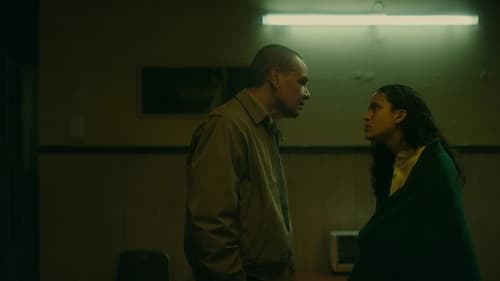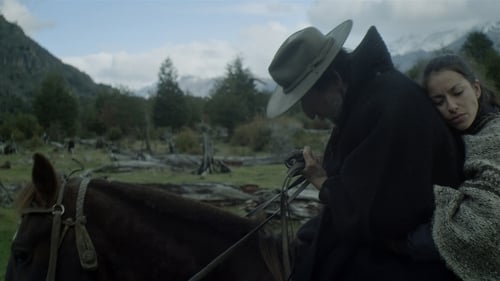
Fernando Guzzoni
출생 : 1983-07-30, Santiago, Chile
약력
Fernando Guzzoni is a film director, screenwriter and producer. In 2008 with only 24 years he released the documentary La Colorina (2008) based on the poet Stella Díaz Varín, supported by the Fondo de Fomento Audiovisual de Chile.
With this documentary he won the award for Best Film at the Trieste Film Festival and the award for Best Director at SANFIC. During 2010 Guzzoni was one of the six beneficiaries among 180 applicants for the Cannes Film Festival's Cinefondation Residence, where he obtained an important grant given by the Festival to write the script of his first feature film Carne de perro (2012) in Paris.
This film was screened at the San Sebastian International Film Festival and gained international recognition by winning the Kutxa award for best film in the New Directors section among 16 countries. The film received more than 15 international awards.
In 2016 he released his third feature film Jesus (2016) which was shown at the Toronto Film Festival and at the San Sebastian Festival's official competition. He won numerous awards including Best Actor at the Turin Film Festival in Italy.
He is now developing his third feature film Blanquita.

Screenplay
18살 블랑키타는 사회 지도층과 길거리의 아이들이 관련된 섹스 스캔들의 핵심 증인이다. 사건을 파헤칠수록 블랑키타의 진술은 신빙성을 잃어가고, 실제로 어떤 일이 있었는지조차 의문이 생긴다.

Director
18살 블랑키타는 사회 지도층과 길거리의 아이들이 관련된 섹스 스캔들의 핵심 증인이다. 사건을 파헤칠수록 블랑키타의 진술은 신빙성을 잃어가고, 실제로 어떤 일이 있었는지조차 의문이 생긴다.

Thanks
Three friends are part of a fascist opposition group in the chaotic Chile of the early 70's and together commit a political crime that changes the history of the country and incidentally involves them in a betrayal that separates them forever.

Script Consultant
Michelsen, an older trucker who is lonely and sick, while traveling through Patagonia meets someone on the highway who reminds him of his daughter, whom he has not seen in years.

Man at the Soda machine
한때는 화려한 성생활을 자랑했던 인기 가수. 이젠 성욕도 떨어지고, 한물간 그녀가 기묘한 팬을 따라 칠레로 향한다. 그녀는 뜨거운 욕망을 되살릴 수 있을까?

Camera Operator
18살의 헤수스는 엄격하고 다소 애정이 없는 아버지와 칠레 산티아고에서 살고 있다. 헤수스와 그의 친구들은 마약을 하거나, 가벼운 섹스를 하거나, TV를 보면서 무의미하게 시간을 보낼 때도 있지만 케이팝 보이 밴드 공연도 한다. 하지만 그의 일상은 어느 날 저녁 술에 취한 친구들과 젊은 게이를 잔인하게 폭행하고 죽게 내버려 두면서 혼란에 빠진다. 헤수스는 심각한 위기에 빠진다.

Writer
18살의 헤수스는 엄격하고 다소 애정이 없는 아버지와 칠레 산티아고에서 살고 있다. 헤수스와 그의 친구들은 마약을 하거나, 가벼운 섹스를 하거나, TV를 보면서 무의미하게 시간을 보낼 때도 있지만 케이팝 보이 밴드 공연도 한다. 하지만 그의 일상은 어느 날 저녁 술에 취한 친구들과 젊은 게이를 잔인하게 폭행하고 죽게 내버려 두면서 혼란에 빠진다. 헤수스는 심각한 위기에 빠진다.

Director
18살의 헤수스는 엄격하고 다소 애정이 없는 아버지와 칠레 산티아고에서 살고 있다. 헤수스와 그의 친구들은 마약을 하거나, 가벼운 섹스를 하거나, TV를 보면서 무의미하게 시간을 보낼 때도 있지만 케이팝 보이 밴드 공연도 한다. 하지만 그의 일상은 어느 날 저녁 술에 취한 친구들과 젊은 게이를 잔인하게 폭행하고 죽게 내버려 두면서 혼란에 빠진다. 헤수스는 심각한 위기에 빠진다.

Screenplay
Alejandro, a solitary, fragile and unpredictable man is crushed by the hostility of his mysterious past.

Director
Alejandro, a solitary, fragile and unpredictable man is crushed by the hostility of his mysterious past.

Idea
Portrait of the Chilean poet Stella Díaz Varín (1926 -2006), who was called “La colorina” because of her red hair. Anarchist, communist, agitator, boxer, grandmother, alcoholic — the first punk in history, as it were. Based on accounts of fellow-travelers.

Screenplay
Portrait of the Chilean poet Stella Díaz Varín (1926 -2006), who was called “La colorina” because of her red hair. Anarchist, communist, agitator, boxer, grandmother, alcoholic — the first punk in history, as it were. Based on accounts of fellow-travelers.

Researcher
Portrait of the Chilean poet Stella Díaz Varín (1926 -2006), who was called “La colorina” because of her red hair. Anarchist, communist, agitator, boxer, grandmother, alcoholic — the first punk in history, as it were. Based on accounts of fellow-travelers.

Director
Portrait of the Chilean poet Stella Díaz Varín (1926 -2006), who was called “La colorina” because of her red hair. Anarchist, communist, agitator, boxer, grandmother, alcoholic — the first punk in history, as it were. Based on accounts of fellow-travelers.







